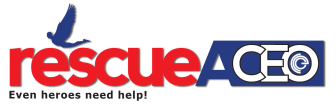When leveraged correctly by CEOs and entrepreneurs, management information systems can add sustainability to their organizations. These systems add smoothness to business activities while monitoring cash flows in various lifecycles of the company.
Recent economic paradigms demand a higher order-turnover process, and in order to satisfy it CEOs and entrepreneurs need to keep track of all resources and business flows.
Greg Foran, President and CEO of Walmart China, believes that each organization needs to develop management information systems to stay sustainable. He has successfully applied this model, which has resulted in Walmart making reasonable reduction in merchandising and operating costs.
Also with legislative changes, CEOs can find themselves needing to adapt, to maintain performance and profitability. Information systems can keep track of taxation and related financial aspects to keep the business efficient.
Scope of Application
A case study on CEOs within the healthcare industry reported that many have resorted to different corporate strategies to mitigate rising costs. Secondly, rising customer demands require a more holistic system. The study focused on data obtained from 218 CEOs and found that those leaders who used management information system were to establish cost reduction measures through relative ease.
Most management information systems are data centric and make use of a variety of tools. It is dependent on the CEO and the nature of business to decide which tools to choose from. Each aspect of the business, ranging from production to finance management, would have its own niche management information system.
CEOs and entrepreneurs operating with large supply chains, employees or related personnel would find taxation and benefit distribution related systems to be a burden of sorts on the efficiency of the company. The management information system would resolve this problem with the help of a relevant tool.
In case of management of retirement funds, a Roth IRA conversion calculator can reduce the management burden on the top level since employees may choose from different types of accounts. Furthermore, it also allows the finance portion of the company to find best ways of earning most on an IRA investment. This is classic example of money management, cost reduction and efficiency being nurtured within the organization.
Adaptation within the organization
It has already been hinted at that management information systems can provide business leaders with unprecedented flexibility. Legislative changes can mean a dip in the profits of a company. This can be seen with a recent report that indicated that CEOs are worried about how Obamacare (the health insurance legislation) would impact their organizations.
A one stop solution for such issues is a management information system, which has special provisions in the form of a decision support system (DDS) and sustainability factors. The dataset is immediately adjusted to the changes and the business process management is optimized.
The best thing about management information systems is that they are more ‘human oriented’, implying they benefit a lot from the intellectual resource of the organization. This aspect was recently commended by Nikolaus Kimla, CEO of Pipelinersales. She is of the opinion that virtual tools do have their benefit, but at the end of the day, it is the human input behind them that really matters.
It has been made pretty clear from the discussion above that management information systems are dynamic and crucial for development of smooth principles and strategies within organizations.

